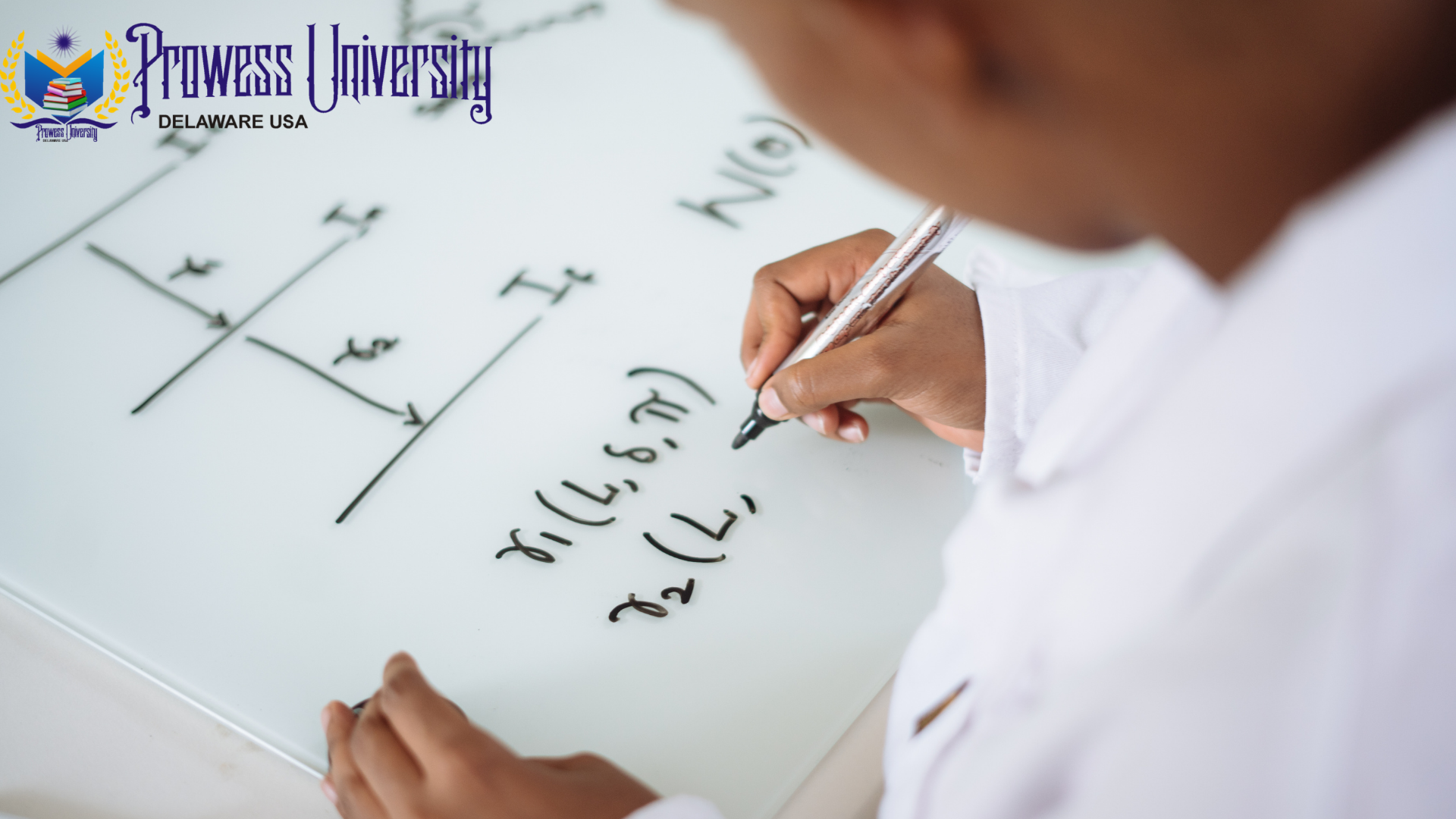The Department to Mathematics runs postgraduate programmes at the Diploma,
Master’s and Doctorate degrees with specialization in any of the following areas:
(i) Mathematics
(ii) Industrial Mathematics
(iii) Statistics
- A student will be required to accumulate a minimum of 30 units, which should include the core courses, required electives courses, seminar and Research Dissertation
- A student shall present a Research Dissertation which must be successfully defended by the student at an oral examination.
DESCRIPTION OF COURSES
MTH 701 Advance Analysis 1 (4 Units)
Complex measures total variation. Absolute continuity, consequence of Random – Nikodmy theorem. Differential Derivative of measure, the fundamental theorem of calculus. Differentiable transformation. Integration on product space: measurability on Cartesian products, product measure.
MTH 702 Advanced Analysis II
Selected topics from the maximum modules principles, approximation by rational functions, conform mapping, zeros of holomorphic functions, analytic continuation and uniform approximation by polynomials.
MTH 703 Harmonic Analysis (4 Units)
Fourier transform: Formal properties, the inversion theorem the pahnchere theorem, the Banach algebra, Elementary properties of Holomorphic function: complex differentiation, integration over path, the local Cauchy theorem, the calculus of residues. Harmonic function: the Cauchy Riemann equations, the poison integral, and the Mean value property. Boundary behavior of poisons integrals. Representation theorems.
MTH 704 Applied Functional Analysis (4 Units)
Benach spaces: Harm – Benach theorem convex space. Lp Spaces, duality convolution and regulation. Hibert Space: Orthogonality and projections with application to optimization.
MTH 705 Ordinary Differential Equation (4 Units)
Existence and uniqueness theorem, global solution green’s function, perturbed differential equations, asymptotic behaviour, stability instability of differential systems, lyapunov methods, periodic solution of linear systems, boundary value problem, differential equation with singularity.
MTH 706 Partial Differential Equation (4 Units)
Basic concept of partial differential equations. The wave equation, the equations of telegraphy, vibration of rods, laplace equations, equation of thermal condition.
MTH 707 Integral Equation and Transforms Method (4 Units)
Fredholm and Volterra equations methods of solution of equations with separable, weakly singularly singular and L2 kernel Fixed points and existence theorems, Fourier transforms, convolution plancherel and inversion theorem. Hankel, Laplace, Mellin, and Hilbert transform, application dual Integra Equation with application to mixed boundary – value problems.
MTH 708 Advanced Numerical Analysis (4 Units)
Linear and non — linears algebra equations. Solution, ill conditioning. Comparisons and development of appropriate computer programmes for full matrices and various types of special metrics. Initial – value problem: linear multi – step methods. Stiff integrator. Boundary value problem: finite difference. Finite elements methods of continuation.
MTH 709 Advanced Numerical Analysis II (4 Units)
Partial differential equation. Derivation convergence, stability, consistency of finite difference methods as appropriate to parabolic equation, hyperbolic equation ad elliptic equation. Introduction to weighed residual and finite and finite elements. Development of appropriate computer programmes. Integral equation; Fredholm and Volterra integral equations: iterative methods and the development of appropriate computer programmes for the integral equation.
MTH 710 Group Theory (4 Units)
Groups of isometrics, group of mobitis transformations, symmetries of an algebra structure homomorphism theorem, finite group, Abellian groups Permutation representation, Free groups and representation.
MTH 711 Calculus of Variation (4 Units)
Functional. Geodesic curve, isoperimetric problems. Euler equations, problem in parametric from. Parametric representation of arcs. Formulation or the ,parametric of the parametric problems, first necessary conditions for a minimum and the externals. Problem with variable end-point.
MTH 712 Optimal Control (4 Units)
Linear tune control problem. Existence of time-optional control. External control. The Ban-Bang principles. The general maximum principle pontriagin mazimum principles. Constrained continuous and discrete optional control problems and methods of solutions. Sensitivity analysis. Euler- Lagrange and Hamilton-Jacobi equation with constraints.
MTH 713 Optimization Theory (4 Units)
The optimization problem and classical optimization. Constraints and Lagrange multipliers. Optimization with inequality one-dimensional search techniques. Penalty – function methods theory of games.
MTH 714 Systems Theory (4 Units)
Ordinary differential equations linear control system. The ideal of system and control. Classical and modern control. Controllability. Observability and linear feedback control. Discrete and stochastic linear systems. Stability theory. Stability of dynamical system lyapunov stability theorem. Stability of autonomous non-autonomous stem systems. Deterministic and probabilistic system. Constrained and unconstrained optional control problems governed by dynamics of solution linear operators.
MTH 715 Statistical Methods 1 (4 Units)
Non-parametric test; the sig and median test. Wilcoxon’s signed rank test of goodness of fit’ test for several independence samples. Run’s test theory of Last Square.
MTH 716 Statistical Methods 11 (4 Units)
Linear statistical inference is using the invariable general linear models, with applications to regression analysis, analysis of variance and analysis of covariance. Practical application and use’ of digital sequential methods; sequential probability ratio test. Properties and application, sequential medical trials.
MTH 717 Operation Research (4 Units)
Advanced treatment of linear programming. Non-inter programming inventory control forecasting techniques’ queuing theory and replacement theory.
MTH 718 Seminar (4 Units)
The student shall present a minimum of two seminars based on his or her dissertation.
MTH 719 Dissertation (4 Units)
Every student must develop a dissertation in any area of Mathematics. The dissertation shall contain materials with reference of at least three sources that are not more than ten years old
Course Features
- Lectures 0
- Quizzes 0
- Duration 50 hours
- Skill level All levels
- Language English
- Students 0
- Certificate No
- Assessments Yes


